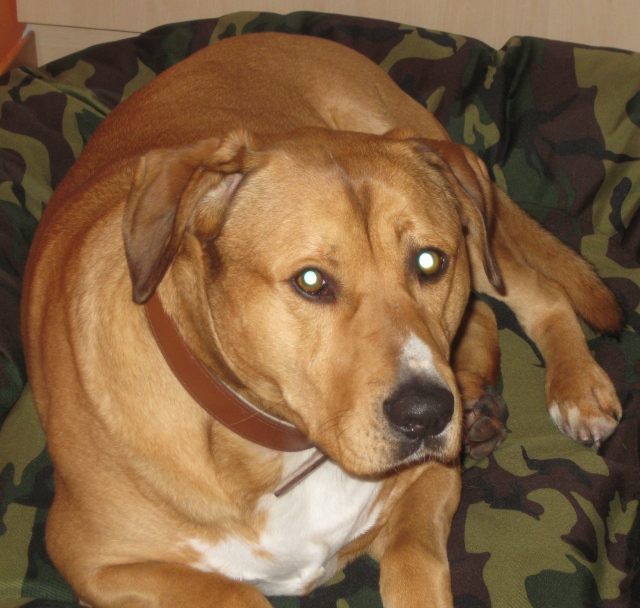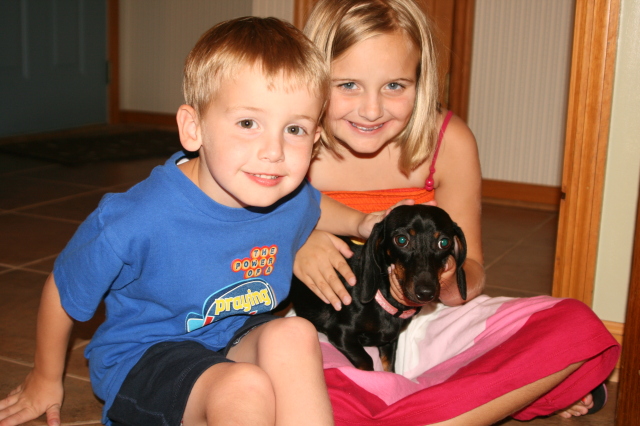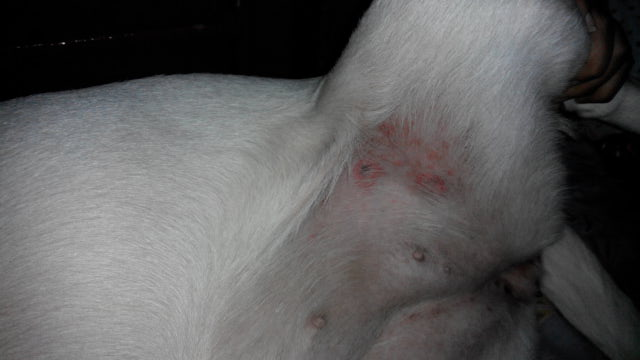QuestionMy 14 year old Maltese wheezes and to me it sounds like it is caused by a build up of mucous and phlegm - it normally lasts a few minutes and is causing her great distress. She is on a brocho dialator but it does not seem to help. She is under the care of a Vet and has had blood tests and Xrays - she does not have a collapsed trachea. The vet thinks it is an allergy, but I think there is mucous in her airway - she has always had issues with a long soft palate. Please give me some advice. Also, should I feed her differently. She is currently fed on Royal Canine dry food mixed with high quality chicken breast. I look forward to hearing from you. (I live in South Africa). Kind Regards Tanya
AnswerHi Tanya,
You didn't say if your vet has said anything about heart disease or if the xrays showed bronchitis. Heart disease can have the symptom of respiratory congestion in dogs.
Once the serious things like heart disease are ruled out, it's reasonable to think your dog has allergies. Besides being allergic to the obvious inhaled things like pollen, dogs can also become congested if they inhale something that irritates the lungs, such as cigarette smoke. Other causes of respiratory congestion in dogs include injury to the lungs from parasites such as heartworms, exposure to toxins, cardiovascular infections and allergic bronchitis.
Talk to your vet about adjusting the dose of your dog's medication. If the bronchodilator isn't working, using another brand with a different active ingredient, or getting a different medication may be a more effective treatment.
If your dog is overweight, that would be contributing to her problem. Exercise and a change of diet might help with weight control but it has to be started gradually, if she is not used to it because it can also irritate the airways. Over time, more active is usually better than less active.
Royal Canine is a fine dog to feed your dog, provided she isn't gaining weight on it. An excess of protein is converted to fat. For a normally active adult dog, the recommended amount of protein in it's diet is 18%, and 9-15% fat. If your dog is quite active it goes up to 25% protein and 20% fat.
If you plan on changing your dog's diet, do so gradually over a period of 5-7 days. Changing a dog's diet too quickly can cause stomach upset or diarrhea.
I hope I've been a help.
Best of luck,
Patti

 Strange dog behaviour ; organic brain syndrome in canine;
Question
Alfie
All of a sudden my 4 year old dog does n
Strange dog behaviour ; organic brain syndrome in canine;
Question
Alfie
All of a sudden my 4 year old dog does n
 1 year old daschund
Question
our new member
We recently got a one year old
1 year old daschund
Question
our new member
We recently got a one year old
 new puppy
Question
bella
I adopted a puppy from the humane
new puppy
Question
bella
I adopted a puppy from the humane
 willpups hair grow back to original color
Question
here is his color befo here is after &nb
willpups hair grow back to original color
Question
here is his color befo here is after &nb
 Live worms came out in my dogs poop and he has some rashes?
Question
The Rashes
She is 15 months old and is
Live worms came out in my dogs poop and he has some rashes?
Question
The Rashes
She is 15 months old and is